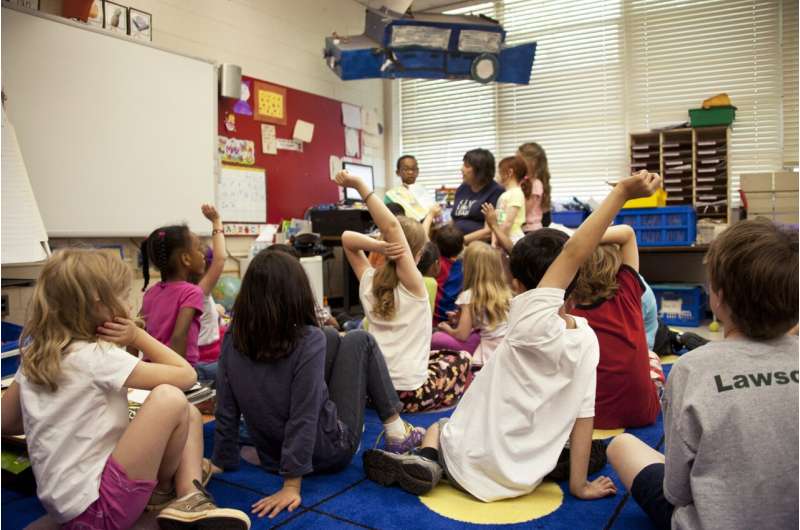This article has been reviewed according to Science X's editorial process and policies. Editors have highlighted the following attributes while ensuring the content's credibility:
fact-checked
trusted source
proofread
Activity sessions in daycare already nurturing emotional skills by 10 weeks, finds research

Concerns are growing about the well-being of children and adolescents and their increasing inequality in Finland. Early childhood education and care provides an environment where these concerns can be addressed as early as possible, particularly by supporting children's social-emotional development.
Social-emotional development denotes, among other things, the development of children's emotional and interactive competencies.
Research on the topic remains scarce in Finland
"Even though there is international research on supporting social-emotional development, there is still little scholarly evidence on the impact of support measures. In our project, we wanted to investigate the impact of two Finnish methods designed for use in daycare centers," says Postdoctoral Researcher Silja Martikainen.
The daycare centers under study utilized SAGA, a technique of shared storybook reading developed by Professor Mirjam Kalland, whereby children are encouraged to identify the thoughts and emotions of the characters in the stories and describe them.
The other method utilized constituted art-based activities built around an animation character named Pikkuli created by Metsämarja Aittokoski, with episodes of the animated series, books and music as the material. Pikkuli emotion cards also were used in support of advancing emotional competence. Early childhood educators were trained in implementing both interventions.
Both interventions supported children's development
Over 10 weeks, a total of 150 children from 15 different daycare groups participated in the study. At the time, the social-emotional development of the children involved in the intervention sessions was compared with that of a group engaged in regular small group activities.
The study found that both interventions, SAGA and Pikkuli, strengthened children's ability to help and support other children and reduced internalizing problems including withdrawn behavior and symptoms of depression and anxiety.
In addition, social orientation in relationships was advanced in the children who took part in the SAGA sessions, while their difficulties in focusing or getting into conflicts with others were reduced. No change was observed in these areas in the control group.
Positive experiences of the interventions among early childhood educators
The experiences of early childhood educators were positive.
"The staff involved in SAGA interventions stated that the model was an easily deployable addition during regular reading sessions. Children's profound thoughts on emotions even surprised the staff," says Kalland.
The experiences of the staff involved in Pikkuli activities were also positive. According to Metsämarja Aittokoski, the creator of Pikkuli, the staff felt that the children's ability to talk about emotions was boosted during the study.
"After the study, the Pikkuli model has been further developed and the content expanded on the basis of the results," Aittokoski adds.
"The research findings are encouraging, and the goal is for the methods found to be effective to remain part of regular early childhood education and care. In this too, sufficient human resources must be taken into consideration," Silja Martikainen notes.
The study is published in the Scandinavian Journal of Educational Research.
More information: Silja Martikainen et al, Supporting social-emotional development in early childhood education and care—a randomized parallel group trial evaluating the impact of two different interventions, Scandinavian Journal of Educational Research (2023). DOI: 10.1080/00313831.2023.2204119
Provided by University of Helsinki





















